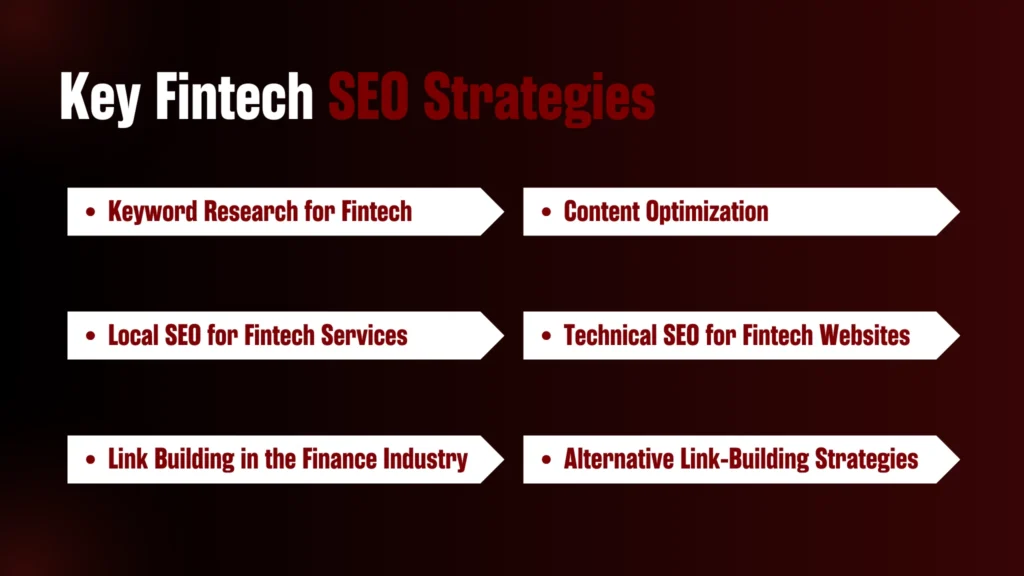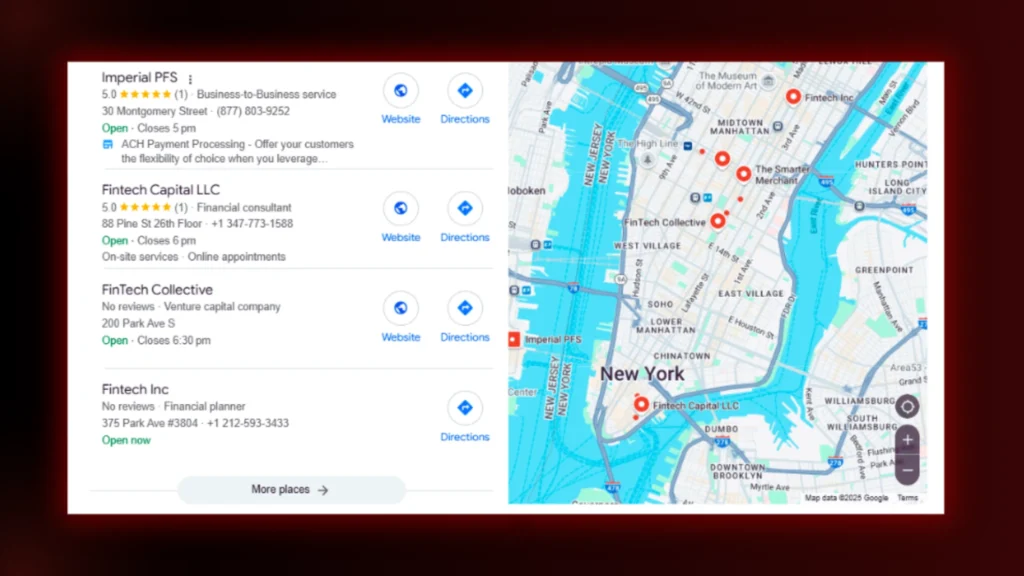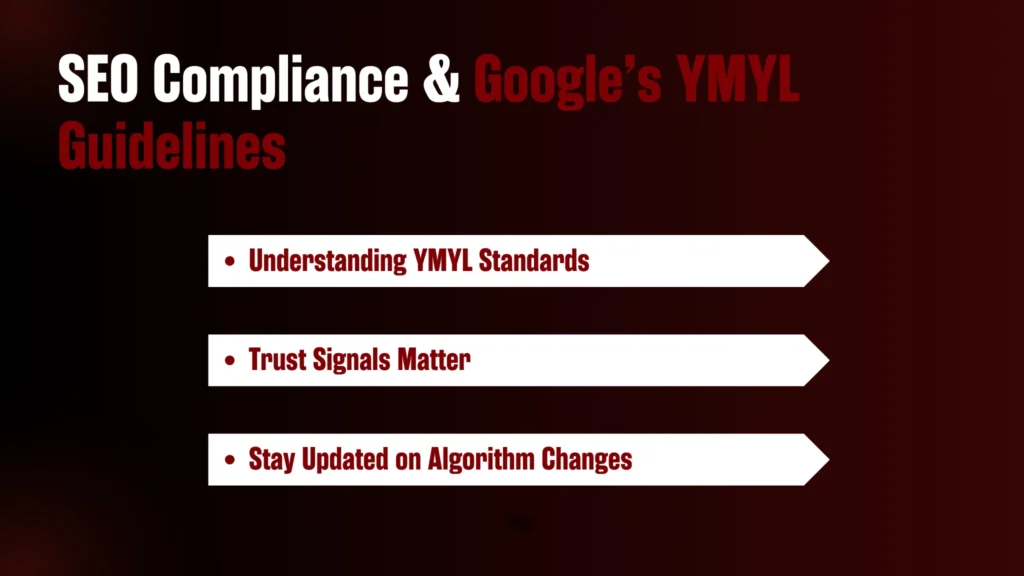Fintech SEO is not for beginners. It’s a high-risk game in which only the smartest player wins. With so much competition and skinny margins, every little bit counts.
Unlike other niches, there’s no room for trial and error. Every ranking drop can mean lost credibility, fewer leads, and a direct hit to your bottom line.
Strict regulations, complex algorithms and evolving user expectations make SEO in this space tougher than ever.
It’s not about luck; it’s about strategy. A well-optimised site does more than rank; it builds authority, drives conversions and positions your brand as a leader.
This guide cuts through the noise. No outdated tactics. No empty promises. Just a clear roadmap to help you navigate challenges and seize opportunities in Fintech SEO.
Why Fintech Companies Need SEO
Fintech companies can’t afford to ignore SEO. Why? Because the competition is brutal. Thousands of businesses are fighting for the same audience, and if you’re not on page one, you might as well not exist.
Then there’s Google. It doesn’t just rank sites based on keywords anymore. It wants expertise, authority, and trust. If your content doesn’t meet E-E-A-T standards, it won’t rank. In finance, where trust is everything, SEO is even more critical.
And let’s talk about costs. Running ads might get you clicks, but it’s expensive. The moment you stop paying, the traffic disappears. SEO, on the other hand, is an investment. Get it right, and your site keeps bringing in leads, month after month, without draining your budget.
Key Fintech SEO Strategies

1. Keyword Research for Fintech
Keyword research is your first step. Without the right terms, you won’t get anywhere. Focus on high-intent keywords. Those are the ones people search for when they’re ready to make a move.
For example, phrases like “best digital wallet” or “top investment apps.” These show real interest.
Short-tail keywords like “credit cards” are competitive. Ranking for them takes time and a lot of work. Instead, start with long-tail keywords. They are easier to rank for and still drive meaningful traffic.
Think: “best credit card for students” or “lowest interest rates on loans.” They’re less competitive and bring in more qualified leads.
Don’t forget to analyze your competitors. Check their ranking keywords and find gaps you can fill. If they’re ranking for terms you haven’t targeted, you might be missing opportunities.

2. Content Optimization
Content is king, especially in fintech. But it needs to be quality. Write with authority. Google rewards sites that provide expert, trustworthy, and helpful content.
Be clear and transparent about financial services. Try to focus on topics that really matter to your audience.
For instance,
- “How to Choose the Best Digital Payment Solution for Your Business”
- “Why Investing in Crypto Could Be the Best Decision in 2024.”
These are hot topics people are actively searching for. But remember: keep everything simple but detailed. Use technical terms, but don’t overcomplicate things. People want clear, useful info without confusion. Find that balance.
3. Local SEO for Fintech Services
Local SEO matters, especially for fintech startups with a physical presence. Set up and optimize your Google Business profile. This is a great way to get noticed in local searches.
Fintech business listings also help. Make sure your company is listed in relevant directories to boost visibility.
Lastly, don’t underestimate the power of customer reviews. Good reviews build trust and boost your rankings. Encourage satisfied users to leave feedback on your Google listing or other review sites.

4. Technical SEO for Fintech Websites
You write the perfect content, and it is good! But SEO isn’t just about content. Your site’s performance plays a huge role. Here are some things you need to consider:
- First, speed matters. If your site is slow, users will bounce. A fast, responsive site keeps visitors engaged and ranks higher.
- Mobile optimization is essential. More people are browsing on their phones. Ensure your site works smoothly on any device.
- Security is non-negotiable. Financial data is sensitive. HTTPS encryption is a must to protect your users and boost your rankings.
- Schema markup also helps. Use it for financial data. It gives search engines a better understanding of your site’s content, boosting your chances of ranking higher.
5. Link Building in the Finance Industry
Building backlinks in fintech can be tough. But they’re worth the effort. Links from high-authority financial sites signal trust in Google. They help increase your site’s authority and ranking.
Since the finance industry is competitive, you’ll need to go the extra mile. Manual outreach works best. Connect with other sites, write guest posts, and collaborate with influencers or fintech leaders.
PR coverage is also a goldmine. A mention in a big media outlet can bring a high-quality backlink. Startups, funding rounds, and IPOs often attract media attention and valuable links.
Even TV advertising can help generate backlinks. The more media exposure you get, the more chances for link-building.
For instance, Revolut frequently gets featured in top-tier media outlets like Forbes, TechCrunch, and Bloomberg whenever they launch new services, such as crypto trading or banking licenses.

6. Alternative Link-Building Strategies
Avoid paying personal finance bloggers for backlinks. Most of them aren’t high-quality links and could hurt your site’s credibility.
Instead, create data-driven content. People love to link to surveys, studies, and finance calculators. These types of resources add value and can be a natural link magnet.
Another strategy is to find brand mentions that don’t link to your site. If someone talks about your company or service but doesn’t link back, ask them to include one.
SEO Compliance & Google’s YMYL Guidelines

1. Understanding YMYL Standards
Google applies strict rules to finance websites. YMYL (Your Money, Your Life) pages must provide accurate and reliable information.
Misinformation can harm users, so Google ranks only the most trustworthy sites. If your content lacks credibility, your rankings will drop.
2. Trust Signals Matter
Google values transparency and authority. Adding expert author bios proves that professionals create your content.
Clearly state your services, policies, and terms to build user trust. Financial disclaimers are essential. They show honesty and help users make informed decisions. Strong trust signals improve both user experience and search rankings.
3. Stay Updated on Algorithm Changes
Google frequently updates its algorithms to refine search results. Finance websites must stay compliant with new SEO standards.
Keep your content up-to-date, fact-check all claims, and ensure your site meets Google’s latest quality guidelines. Staying ahead of these changes will help you maintain strong rankings and credibility.
FAQs
1. What is SEO in Finance?
SEO in finance helps financial websites rank higher on search engines. It enhances:
- Visibility
- Builds trust
- Attracts organic traffic
So, strong SEO means better rankings, more leads, and higher credibility.
2. What are the 5 D’s of Fintech?
The 5 D’s explain how fintech is changing finance:
- Digitization – Moving services online.
- Democratization – Making finance accessible to all.
- Decentralization – Reducing reliance on banks.
- Disintermediation – Removing middlemen.
- Datafication – Using data for better decisions.
3. What is Tech SEO?
Tech SEO improves a website’s backend for better rankings. It includes:
Site speed
- Mobile-friendliness
- Security
- Structured data
A well-optimized fintech site loads fast, works on all devices, and follows Google’s rules.
4. What is Fintech in Marketing?
Fintech marketing promotes financial tech products. It uses SEO, content marketing, ads, and social media. The goal is to:
- Educate users
- Build trust
- Increase conversions
Final Thoughts
Fintech SEO is more than rankings. It builds trust and drives growth. In a competitive space, a strong strategy is key.
SEO is complex. Google’s rules keep changing. A smart, data-driven approach is a must.
Need SEO Help?
We specialize in Fintech SEO. Our team of experts at Brand ClickX helps businesses rank higher, get more traffic, and convert leads.
Contact us today. Let’s grow your fintech brand with SEO that works!



